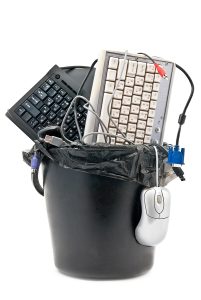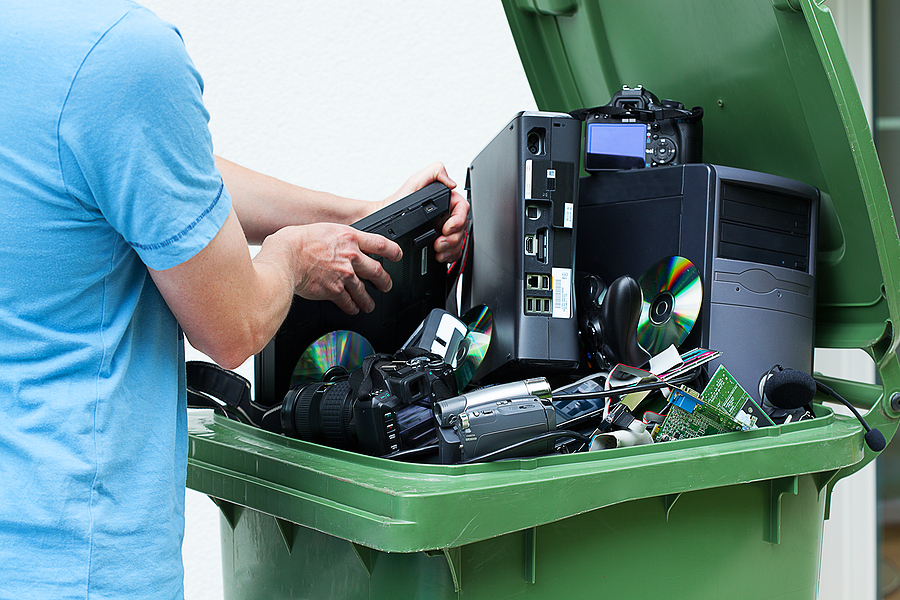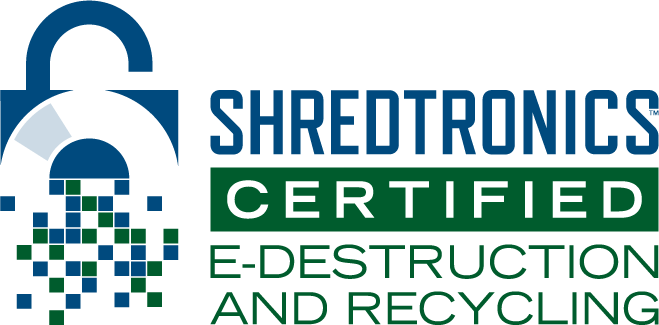
The Environmental Protection Agency (EPA) is a regulatory agency that is part of the executive branch of the US federal government. It was created in 1970 by President Nixon in order to protect the environment and human health. The agency’s goals include ensuring that Americans have clean natural resources; the reduction of environmental risks are based on scientific information; federal laws that protect health and the environment are enforced fairly; environmental stewardship is central to US policies; toxic sites are cleaned up; chemicals are regulated; and communities have access to accurate environmental information. The EPA has become a vital aspect of the legal landscape of the United States that impacts many different sectors, including e-waste disposal, reuse, and recycling.
Accomplishing EPA Goals
In order to accomplish its stated goals, the EPA develops and enforces regulations, awards grants, studies environmental issues, sponsors partnerships with various organizations and bodies, teaches about the environment, and informs the public about their activities. The agency has developed impactful laws such as the Clean Air Act and the Clean Water Act, which regulate emissions and pollution. Laws such as these protect the earth as well as the health of communities. Included in their regulations are individual topics, such as asbestos and Per- and Polyfluoroalkyl Substances (PFAS). They also create and enforce regulations on various sectors like agriculture, oil and gas, and construction. To enforce laws and regulations, the EPA can take either non-judicial enforcement actions or formal lawsuits. These consequences can span from a notice of violation to fines or jail time.
According to the EPA, “Nearly half of our budget,” about four billion dollars, “goes into grants to state environmental programs, non-profits, educational institutions, and others.” Recipients include state governments, non profit organizations, and more. An important part of the EPA is their collaborations with various governmental and private bodies beyond their grants. Sponsoring various efforts extends their ability to influence public health and the environment. This partnership and gifts aspect of the EPA furthers their mission to include the public in keeping the environment and human health safe. The agency’s research arm, the Office of Research and Development (ORD), researches and publishes papers on what they find. They share this information with other countries to collectively benefit the health of the world. This research and reporting aspect helps the EPA to share with the public about new scientific discoveries and health outcomes.

Air Quality Protection
Through regulations, the EPA targets emissions from various sources including vehicles, power plants, factories, and industrial activities. Programs such as the National Ambient Air Quality Standards (NAAQS) and the Clean Air Act Amendments play important roles in lowering air pollution levels, thereby enhancing public health. By setting standards and implementing measures to control emissions, the EPA strives to ensure that citizens have access to clean and healthy air, mitigating the adverse effects of pollution on human health and the environment.
Water Quality Protection
With the Clean Water Act as its cornerstone legislation, the EPA states that it is dedicated to preserving and improving water quality nationwide. The agency regulates discharges into water bodies and establishes standards for drinking water quality to safeguard human health and aquatic ecosystems. Through a combination of regulatory enforcement, monitoring, and collaborative efforts with state and local partners, the EPA works to prevent water pollution, restore impaired water bodies, and ensure access to safe drinking water for communities across the country. These initiatives are critical for maintaining the integrity of aquatic ecosystems.
Hazardous Waste Management
The EPA plays a pivotal role in managing hazardous waste through comprehensive programs like the Resource Conservation and Recovery Act (RCRA) and the Superfund program. These initiatives address the cleanup of contaminated sites, the proper management of hazardous waste disposal, and the prevention of future pollution incidents. By conducting assessments, implementing cleanup actions, and holding responsible parties accountable, the EPA works to protect human health and the environment from the adverse effects of hazardous waste contamination. These efforts are essential for remedying past environmental damage and preventing potential risks to communities and ecosystems.
Chemical Safety
Protecting human health and the environment from the risks associated with chemicals is a core responsibility of the EPA. The agency regulates the manufacture, use, and disposal of chemicals through legislation such as the Toxic Substances Control Act (TSCA) and other chemical management programs. By assessing the risks posed by chemicals, conducting research, and implementing risk reduction measures, the EPA aims to ensure the safe handling and use of chemicals while minimizing their adverse impacts. These efforts are crucial for safeguarding public health, reducing environmental contamination, and promoting the responsible management of chemical substances.
Environmental Justice

The EPA addresses environmental justice issues to strive toward the goal of ensuring that all communities, especially those disproportionately affected by pollution, have equal access to environmental protection and resources. The agency works at actively engaging with stakeholders, conducting outreach initiatives, and incorporating environmental justice considerations into decision-making processes, the EPA seeks to promote equity and fairness in environmental policies and practices.
Climate Change and Sustainability
The EPA promotes programs that aim to improve sustainability in the US in order to combat the issue of climate change. Through regulations, policies, and programs, the agency works to reduce greenhouse gas emissions, promote energy efficiency, and support renewable energy sources. Initiatives such as the Clean Power Plan and ENERGY STAR program aim to mitigate the impacts of climate change and promote sustainable practices across sectors. By fostering innovation, supporting research, and encouraging collaborative efforts, the EPA is advancing solutions to address climate change in the hopes to build a more resilient and sustainable future.
Electronic Waste Regulations
Electronic waste, when not disposed of correctly, can be harmful to the environment. Chemicals in the materials used in creating the devices can leach into the soil and water sources. Therefore, the EPA regulates how electronics are destroyed, disposed of, and recycled. ShredTronics can match you with a provider for any of these services that is invested in the wellbeing of both your privacy and the environment. Our nationwide network of partners is compliant with relevant federal, state, and local regulations.
The EPA collaborates with international organizations to address e-waste both in the US and in other countries, as it is a growing issue. The EPA provides guidance and resources to help states, local governments, and businesses develop and implement e-waste management programs. These guidelines address various aspects of e-waste management, including collection, transportation, recycling, and disposal, with an emphasis on environmental protection and human health. Overall, the EPA regulates e-waste formally–through methods like the Basel Convention–as well as informally–through education and awareness.
To get started with trusted, compliant electronic waste management for all of your devices today, ShredTronics can get you matched with multiple free, customizable quotes in just minutes. Call our experts (844) 648-4908 or fill out the form.











